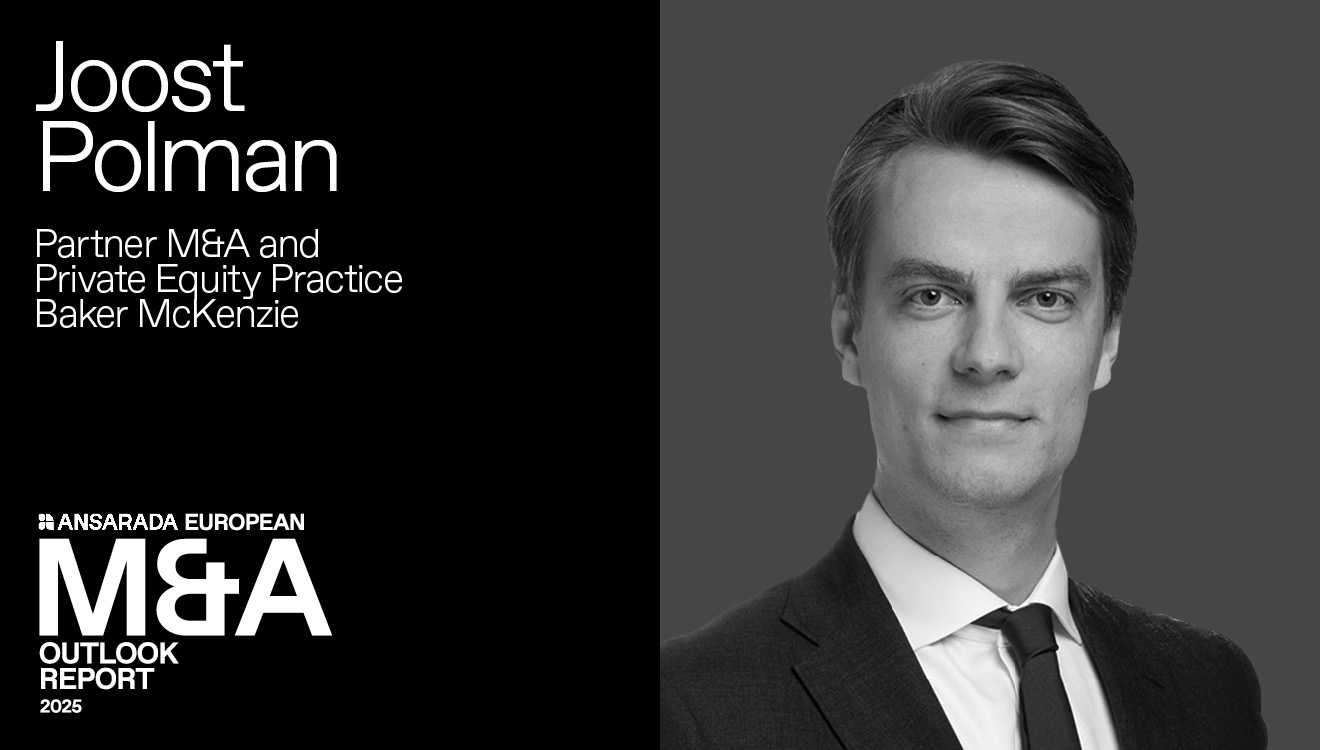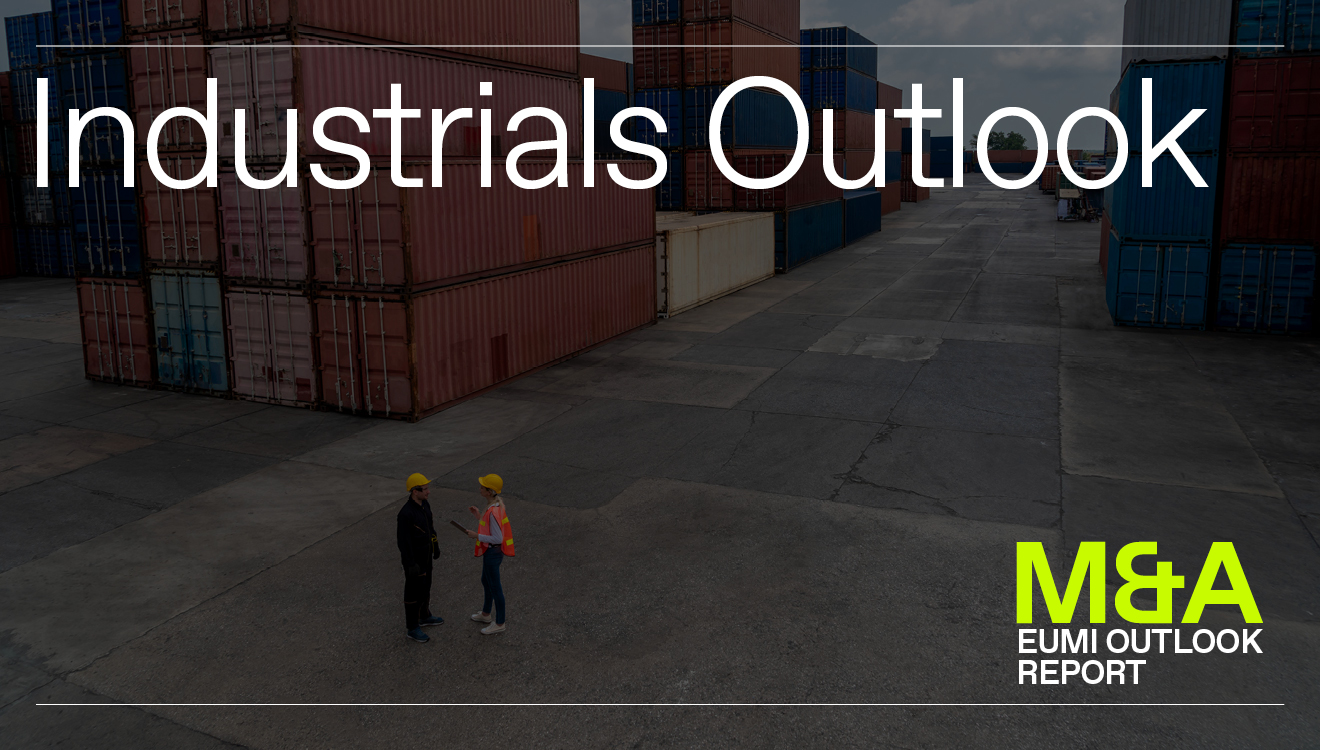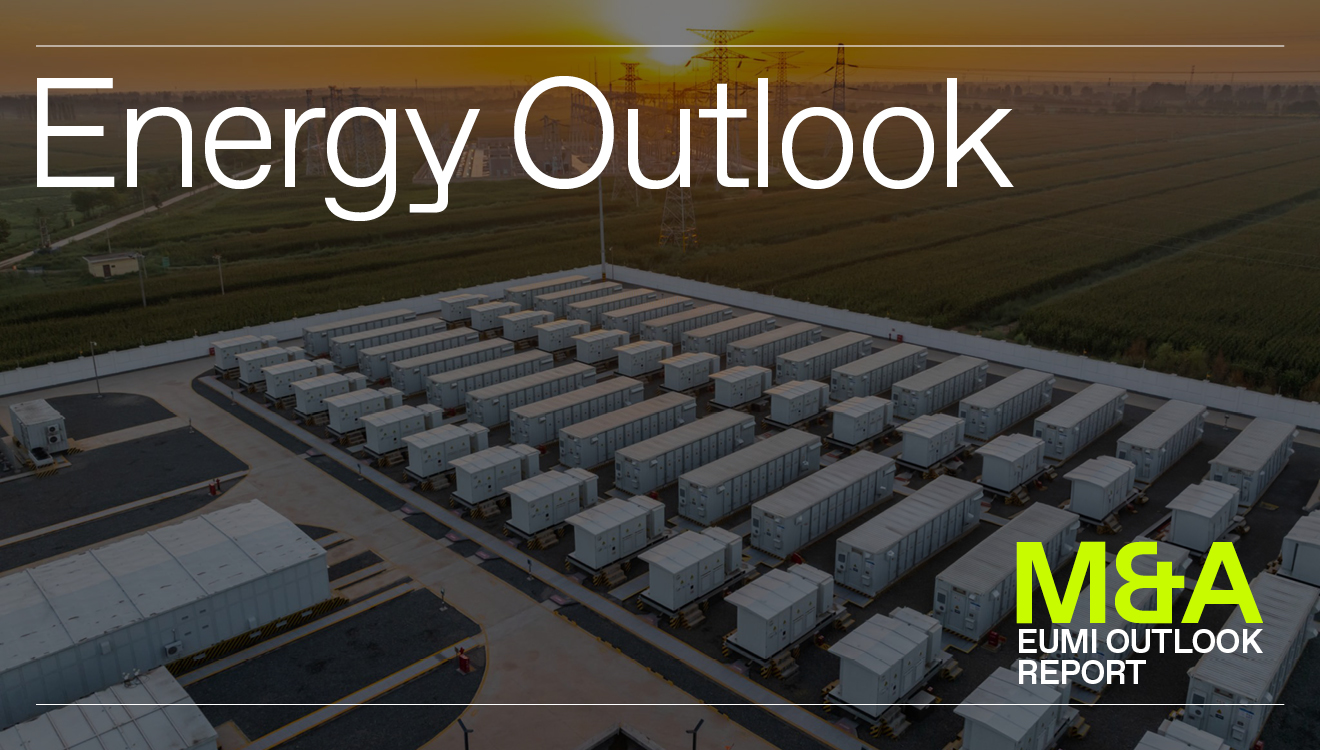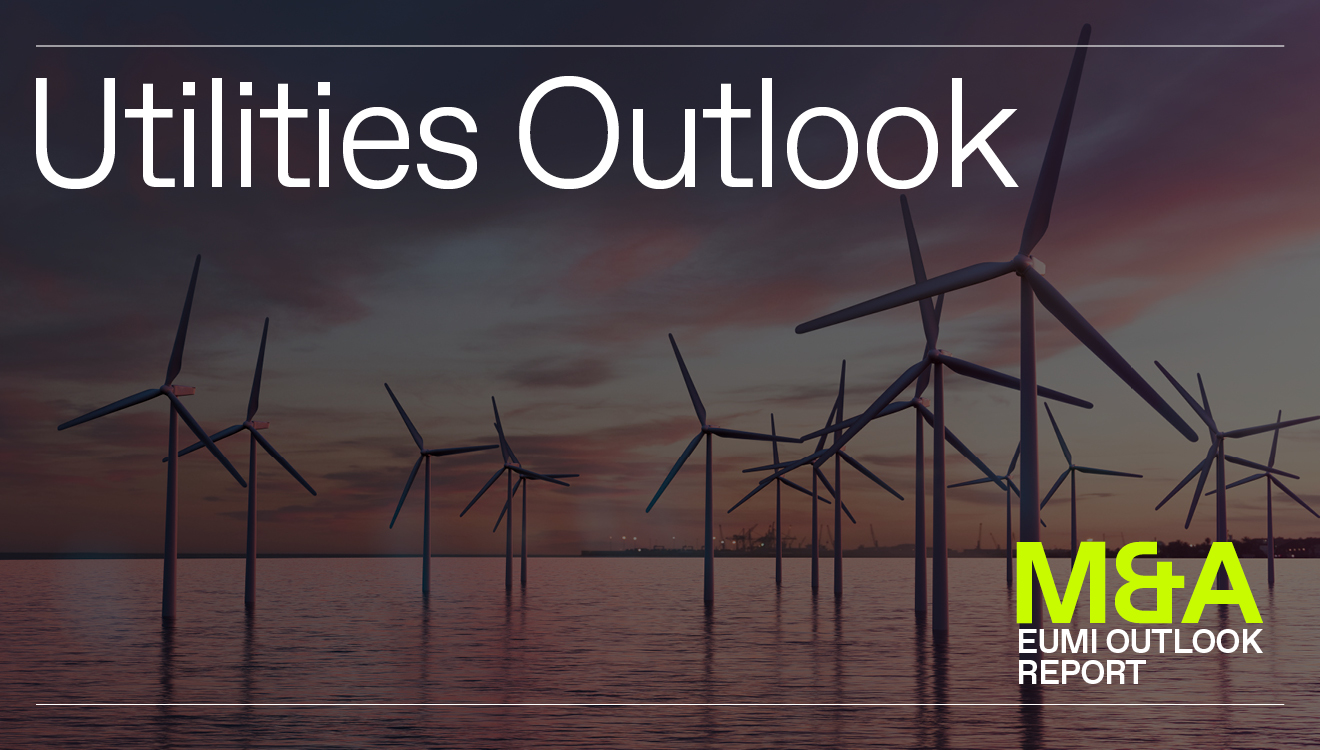Baker McKenzie’s Joost Polman: The impact of tariffs and trade wars
Joost shares how while a US-Europe trade war is a possibility, they are still optimistic that this is unlikely as it is not in the interest of the EU economy.
By AnsaradaTue Mar 18 2025Mergers and acquisitions, Due diligence and dealmaking, Advisors

In this excerpt from our 2025 European M&A Outlook Report, which features insights from 12 leading European dealmakers, Joost Polman, Partner, M&A and Private Equity Practice at Baker McKenzie, talks Trump, tariffs and trade wars as we look ahead to dealmaking in 2025 and beyond.
Deep dive into Joost’s insights below:
- Since the time of writing, the US imposed tariffs on EU aluminum and steel imports at 25%. The EU plans to implement €26 billion in retaliatory tariffs by mid-April 2025. Sectors in the firing line in the US are the auto, whiskey, and machinery, with heavy tariffs being threatened on the import of EU wine and champagne.
- Tariffs imposed by Donald Trump and the US government cause inflationary pressure as costs are passed to consumers, with spending decreasing.
- Foreign businesses face a difficult choice when dealing with tariffs: absorb the cost to maintain prices with reduced profit or pass costs to consumers with higher prices. Higher prices risk making their products less competitive. This situation forces companies to balance financial strain against the potential loss of market share, resulting in a loss-loss situation for non-US companies.
- Investor sentiment is very cautious due to the trade war, inflationary indicators, geopolitical instability from the Russia-Ukraine conflict and the potential for a global economic slowdown. Investors fear the likelihood of a recession and so cautious investment.
What do you think will be the biggest potential risks or challenges that dealmakers will have to contend with in 2025?
Geopolitical challenges are among the biggest risks that dealmakers face. It will be interesting to see what policies are implemented under the new Trump administration, especially in relation to imposing import tariffs on EU goods and services. We will need to see how the EU responds to any potential tariffs.
While a US-Europe trade war is a possibility, I am still optimistic that this is unlikely as it is not in the interest of the EU economy. The EU has issued a growth expectation of roughly 1.5% in 2025, which is subject to potential import tariffs being imposed. If this happens, it may adversely affect growth.
Another major challenge for dealmakers, which is by no means new, is regulatory scrutiny. Due to the current political climate in various European jurisdictions, deals are being placed under more scrutiny than in the past. This trend is expected to only increase, resulting in delayed processes.
And thirdly, there are a growing number of ESG regulations coming into force. The Corporate Sustainability Reporting Directive (CSRD), introduced at the start of 2023, requires companies to report on how sustainability activities impact their business. Larger companies, in particular, will need to spend time and resources to make sure they are sufficiently prepared for any future shifts in regulation.
If you are acquiring a business that is subject to ESG regulations, it will become an integral part of your due diligence process. Due diligence processes will become more comprehensive and therefore more time consuming. It is a risk to dealmaking, as buyers may pick fights before engaging in the deal process due to the extra burden they will carry.
How do you expect financing conditions to change in the next 12 to 18 months?
This is clearly a positive for European dealmaking, as lower cost of capital will allow higher valuations and make it more attractive to sell. In the Netherlands, we are also seeing an easing of interest deductibility regulations from a tax perspective, which is another encouraging sign for dealmaking. Despite uncertainty surrounding tariffs, I believe the overwhelming feeling is that cost of debt will reduce over the coming year.
Are dealmakers dedicating more resources to due diligence to make sure potential deals get off on the right foot? What facets of due diligence are they increasingly prioritising?
We are certainly seeing dealmakers spend more time and resources on due diligence. As deal timelines become extended it leaves more time for buyers to be picky. They have time to really focus on a certain target and carry out thorough due diligence.
While relatively new to the scene, ESG factors have become a standard part of the due diligence checklist, which was not the case three to five years ago. Cybersecurity is another important part of due diligence, with cyber threats increasing on a daily basis. Certain companies are facing a wide range of foreign threats, especially within the financial industry.
And finally, due to the geopolitical challenges present in today’s global economy, due diligence in relation to sanctions has become an increasingly important part of European dealmaking. While there are many sanctions to consider, not all jurisdictions are equally active in enforcing these. In the Netherlands, however, regulators are quite active.
In your experience, how large an impact has the war in Ukraine and sanctions against Russia had on M&A within Europe? How are dealmakers approaching transactions that involve sanctions risk?
There is certainly a large focus on any target business having exposure to trade with Russia.
The majority of investors we advise are, understandably, taking a very strict approach to sanction risk, shutting down, divesting, or carving out any part of the business with an exposure to Russia. They simply want to get rid of that part of the business, even if perhaps, when they look closely, there are possibilities to hold on to the business because that business itself is not subject to sanctions.
Lenders also have a hard time funding or financing deals that have exposure to Russia for the same reasons.
This situation has had a significant impact on European dealmaking. It is not a favourable outcome for many European businesses as they have lost part of their market. The businesses that are actually benefiting are Russian investors able to hold on to assets, or even acquire assets at a cheaper valuation than prior to the war with Ukraine due to exit penalties and other restrictions imposed by the Russian government.
Tariff and trade war FAQ’s
What are tariffs and trade wars?
What is the effect of tariffs on trade?
When a government impose tariffs on other countries, the opposing countries may choose to stop importing to that country or pass that cost onto consumers. For example, a 25% tariff on another country may cause a 25% increase in price which is directly proportional to the cost of that tariff. As a result, as price increases drastically, trade demand and product imports may significantly decrease.
Do tariffs cause inflation?
While tariffs alone do not cause inflation, the added costs can contribute to inflation as production costs increase for businesses that rely on foreign inputs. To maintain profit margins, domestic businesses will increase product pricing which directly impacts the purchaser. Several factors determine the effect of tariffs on inflation such as the size and lifespan of the tariff, the types of goods affected and how purchasing decisions change and their impacts on the economy.
People also read:
-
Renesas Electronics’ Natasha Davidson: Lower rates to ease borrowing costs
-
WTW’s Miguel De Bruno Guerra: The growing power of AI in the dealmaking process
- Procurement strategy pointers: How to establish an internal approvals process that streamlines decision making and reduces risk


